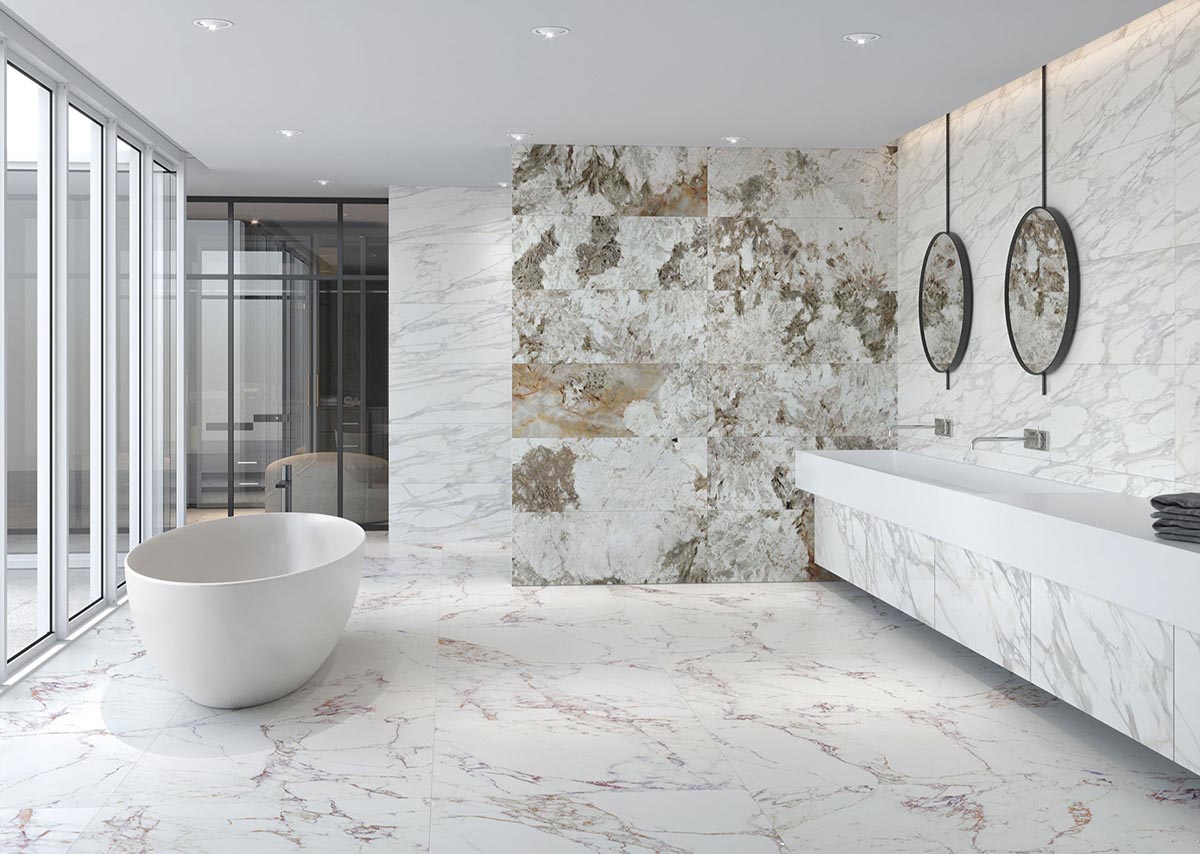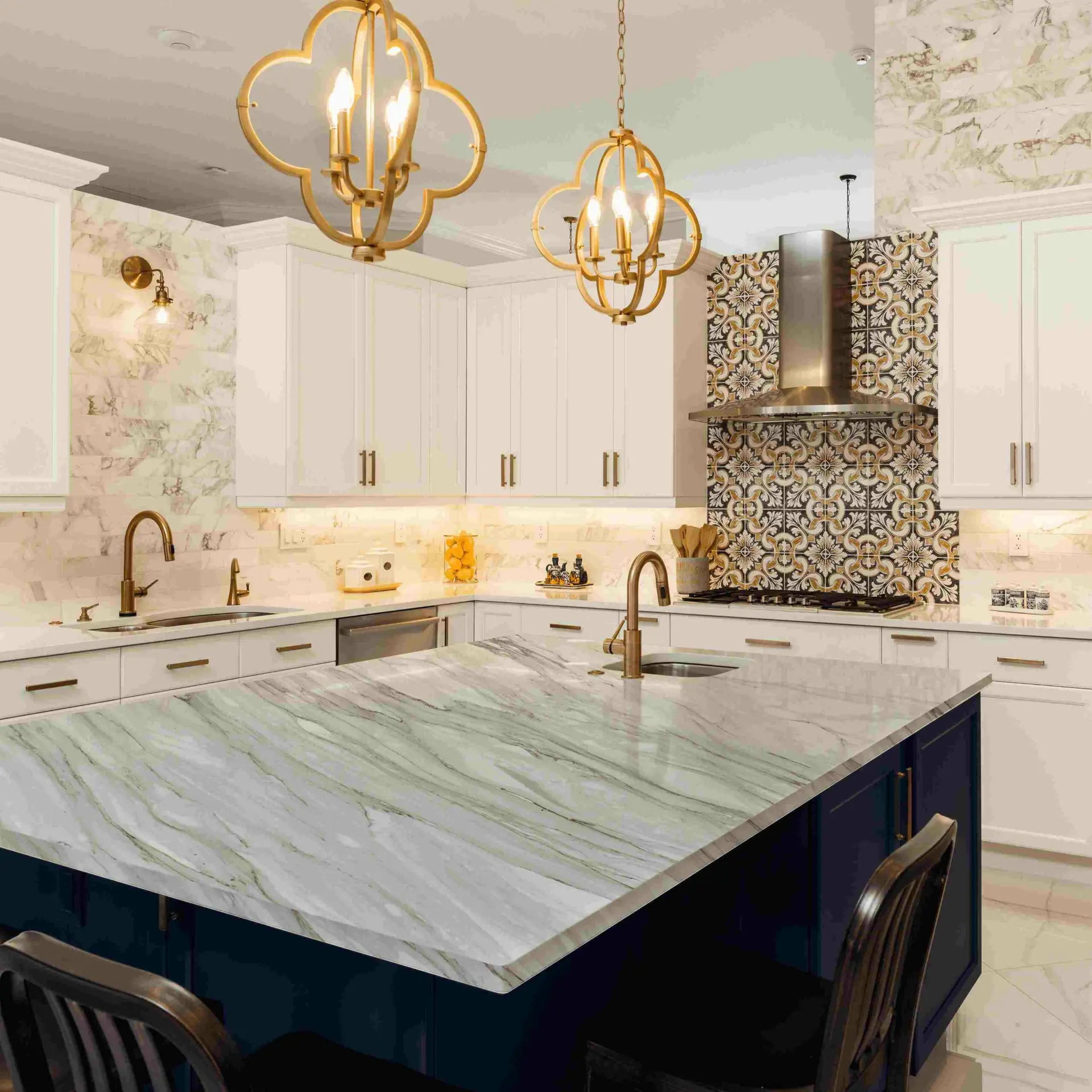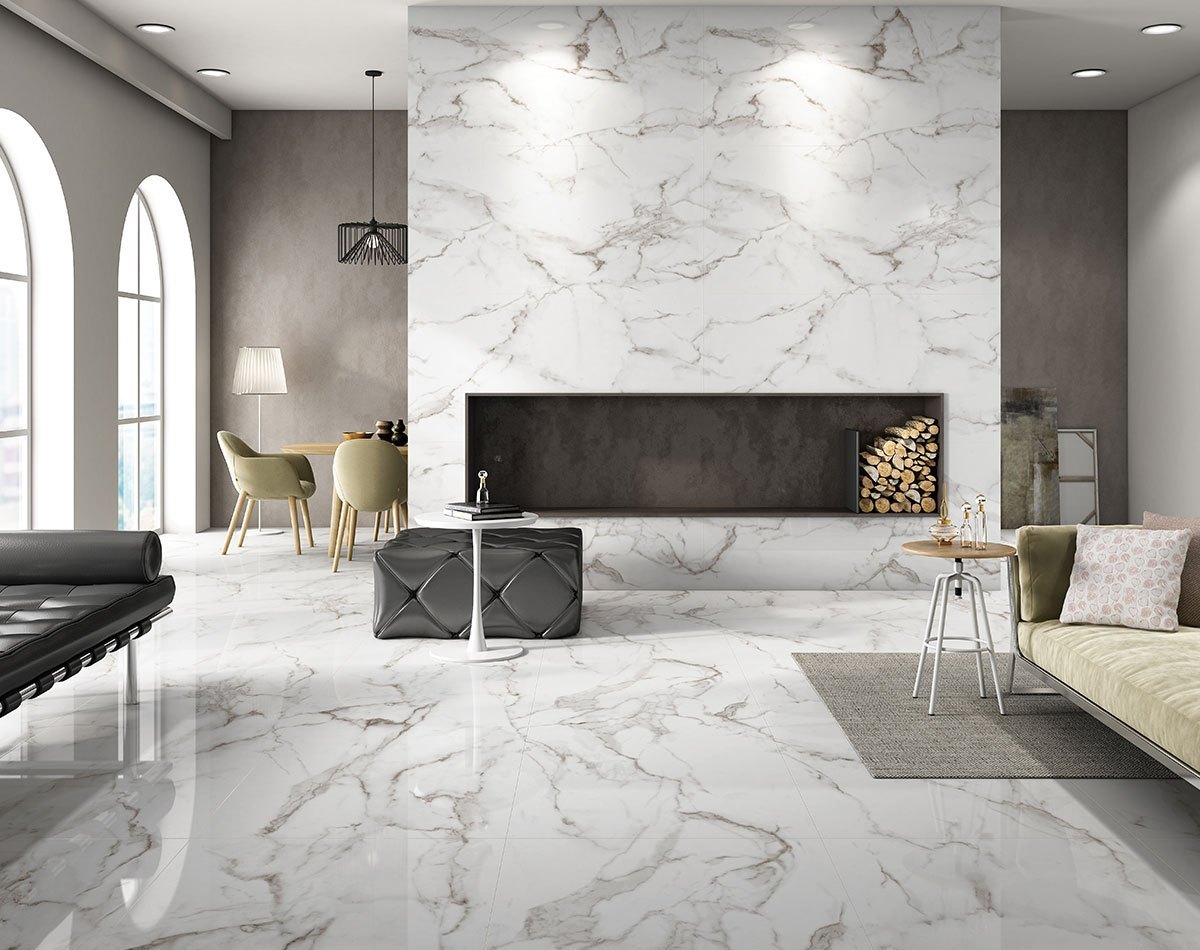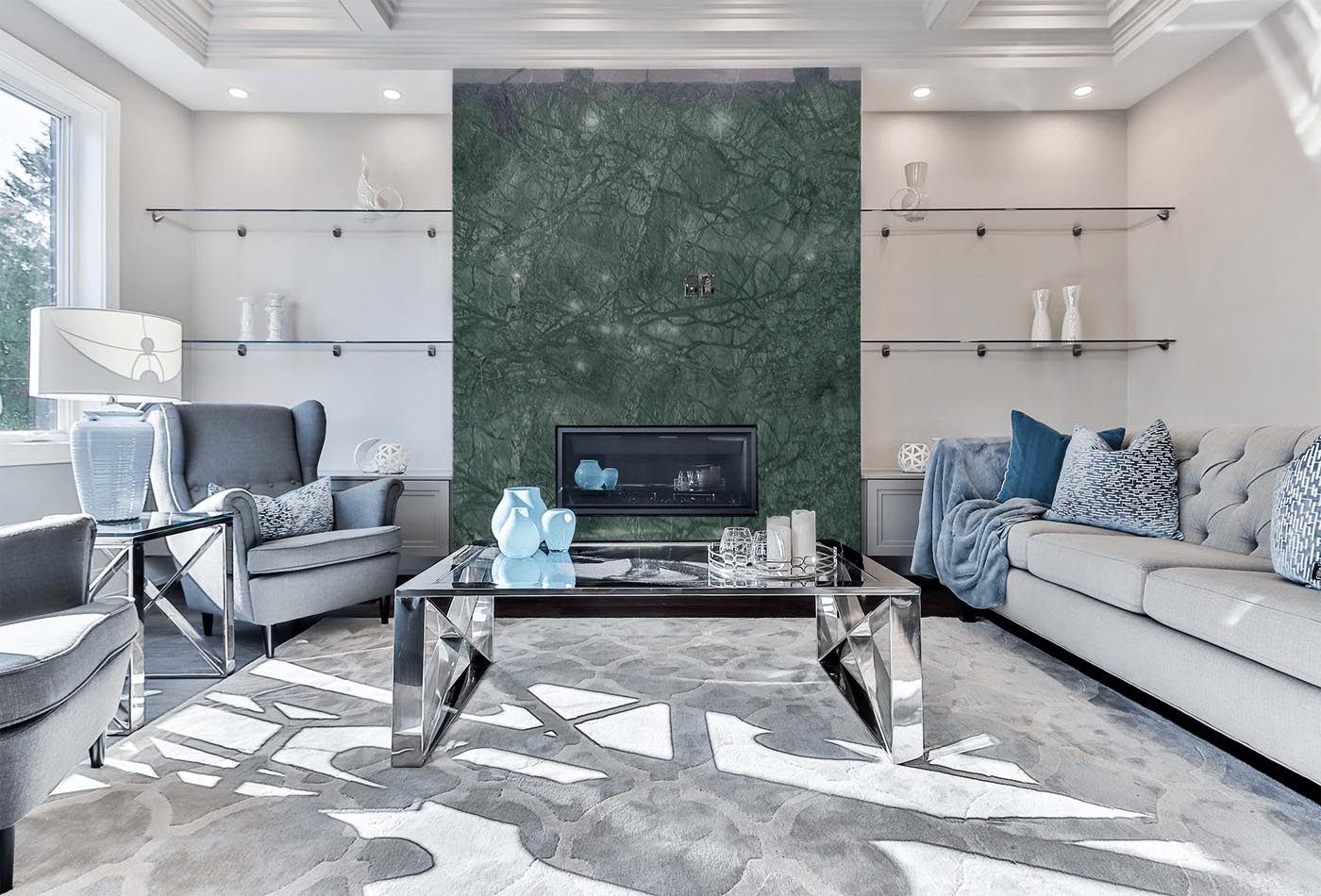Marble vs. Other Natural Stones: A Comprehensive Comparison

When selecting natural stone for your home, understanding the differences between various options is crucial for making an informed decision. Each stone type offers unique characteristics in terms of appearance, durability, maintenance, and cost.
Marble: Timeless Elegance
Appearance
Marble is renowned for its luminous appearance and distinctive veining. Available in various colors, from pure whites to dramatic blacks, each marble slab is unique with veining patterns that range from subtle to bold.
Durability
- Hardness: 3-4 on the Mohs scale (relatively soft compared to other stones)
- Heat Resistance: Good resistance to heat, but can be damaged by prolonged exposure
- Scratch Resistance: Susceptible to scratching
- Chemical Sensitivity: Highly reactive to acids, which cause etching
Maintenance
Requires regular sealing (every 3-12 months) and prompt cleaning of spills. Acidic substances must be kept away from the surface to prevent etching.
Best Applications
Ideal for bathroom vanities, low-traffic areas, fireplace surrounds, and decorative elements. Can be used in kitchens with proper care and acceptance of patina development.
Granite: Robust Durability
Appearance
Granite offers a speckled or granular appearance with consistent patterning. Available in hundreds of colors, it typically has a more uniform look than marble.
Durability
- Hardness: 6-7 on the Mohs scale (very hard)
- Heat Resistance: Excellent resistance to heat
- Scratch Resistance: Highly resistant to scratches
- Chemical Sensitivity: Resistant to most household chemicals
Maintenance
Requires sealing 1-2 times per year. Generally forgiving of spills if wiped promptly.
Best Applications
Perfect for kitchen countertops, high-traffic areas, outdoor applications, and anywhere durability is a priority.
Quartzite: Natural Strength
Appearance
Quartzite often resembles marble with its veining patterns but comes in more varied colors, including whites, grays, golds, and reds.
Durability
- Hardness: 7-8 on the Mohs scale (extremely hard)
- Heat Resistance: Excellent resistance to heat
- Scratch Resistance: Highly resistant to scratches
- Chemical Sensitivity: Good resistance to most chemicals
Maintenance
Requires sealing 1-2 times per year. Relatively low maintenance compared to marble.
Best Applications
Excellent for kitchen countertops, high-traffic areas, and anywhere combining marble's aesthetics with granite's durability is desired.
Soapstone: Rustic Charm
Appearance
Soapstone has a soft, matte finish with a smooth feel. Typically dark gray to black, it often contains subtle veining and darkens over time.
Durability
- Hardness: 1-5 on the Mohs scale (soft to medium)
- Heat Resistance: Exceptional heat resistance
- Scratch Resistance: Can be scratched but scratches can be sanded out
- Chemical Sensitivity: Highly resistant to chemicals and acids
Maintenance
Doesn't require sealing but benefits from regular mineral oil applications to maintain even coloration.
Best Applications
Well-suited for kitchen countertops, sinks, fireplace surrounds, and laboratories due to its heat and chemical resistance.
Limestone: Subtle Sophistication
Appearance
Limestone offers a more uniform, granular appearance with subtle tonal variations. Typically found in beige, tan, and gray tones.
Durability
- Hardness: 3-4 on the Mohs scale (relatively soft)
- Heat Resistance: Moderate heat resistance
- Scratch Resistance: Susceptible to scratching
- Chemical Sensitivity: Highly reactive to acids
Maintenance
Requires regular sealing and careful cleaning similar to marble.
Best Applications
Best for bathroom vanities, fireplace surrounds, and low-traffic flooring. Not recommended for kitchens.
Travertine: Natural Warmth
Appearance
Travertine has a distinctive pitted appearance with warm earth tones of beige, tan, and brown. It can be filled or unfilled, affecting its texture.
Durability
- Hardness: 4-5 on the Mohs scale (medium hardness)
- Heat Resistance: Good heat resistance
- Scratch Resistance: Moderately resistant to scratches
- Chemical Sensitivity: Sensitive to acids
Maintenance
Requires regular sealing and prompt cleaning of spills. Unfilled travertine needs more maintenance.
Best Applications
Suitable for bathroom floors, walls, shower surrounds, and outdoor patios in warmer climates.
Making Your Decision
When choosing between natural stones, consider:
- Lifestyle: How much maintenance are you willing to perform?
- Usage: What activities will take place on or around the stone?
- Aesthetics: Which look best complements your design vision?
- Budget: Natural stone prices vary widely, with rare marbles often being the most expensive.
- Longevity: Are you seeking a pristine appearance long-term, or do you appreciate the development of patina?
By weighing these factors against the characteristics of each stone type, you'll be able to select the natural stone that best suits your specific needs and preferences.
Related Articles

How to Choose the Right Marble for Your Kitchen
A comprehensive guide to selecting the perfect marble for your kitchen countertops, backsplashes, and islands.

The Ultimate Guide to Maintaining and Cleaning Marble Surfaces
Learn how to properly care for your marble surfaces to ensure their beauty and longevity for years to come.

Trending Marble Designs in Modern Interior Design
Discover the latest trends in marble usage for contemporary interior design, from statement walls to furniture pieces.
